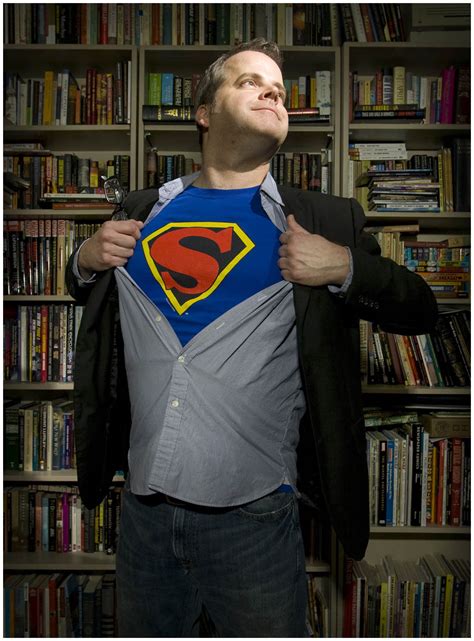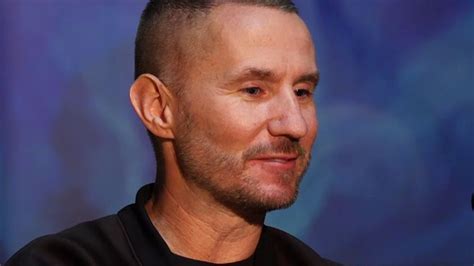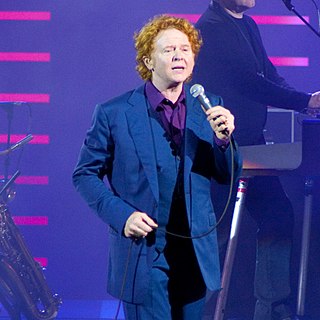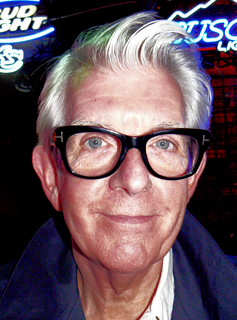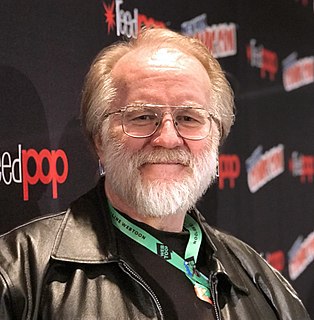A Quote by Lawrence Lessig
If the only way a library can offer an Internet exhibit about the New Deal is to hire a lawyer to clear the rights to every image and sound, then the copyright system is burdening creativity in a way that has never been seen before because there are no formalities.
Related Quotes
If we're talking about someone creating something new, those rights are fairly well defined (in the United States, at least) under existing copyright law. But then there's often discussion about the rights of people who produce works under work-for-hire arrangements, which can be far more subtle and nuanced.
We don't believe it's possible to protect digital content. What's new is this amazingly efficient distribution system for stolen property called the Internet-- and no one's gonna shut down the Internet. And it only takes one stolen copy to be on the Internet. And the way we expressed it to them is: Pick one lock--open every door. It only takes one person to pick a lock. Worst case: Somebody just takes the analog outputs of their CD player and rerecords it-- puts it on the Internet. You'll never stop that. So what you have to do is compete with it.
We're all about exploring new sounds, so we don't have any limits whatsoever about how we go about finding them. We do tend to sample human vocals or sample sounds, which allows you to create your own sound. That's not our only way obviously, but that's a way you can use a sound no one's used before; it's not a sound in the synth. There's a lot of that going on in our songs in general.
I don't know when the last time was that Steven Spielberg or George Lucas made a movie with Universal, but I can tell you that Universal is leading the charge. They're looking at film differently. They're planning ahead in a way that I've never seen a studio do before. They're believing in a relationship between fan and film franchise, in a new way. They're more receptive to an audience, in part because of social media, in a way we've never been allowed.
I think the reality is that copyright law has for a very long time been a tiny little part of American jurisprudence, far removed from traditional First Amendment jurisprudence, and that made sense before the Internet. Now there is an unavoidable link between First Amendment interests and the scope of copyright law. The legal system is recognizing for the first time the extraordinary expanse of copyright regulation and its regulation of ordinary free-speech activities.
Monopolies are not justified by theory; they should be permitted only when justified by facts. If there is no solid basis for extending a certain monopoly protection, then we should not extend that protection. This does not mean that every copyright must prove its value initially. That would be a far too cumbersome system of control. But it does mean that every system or category of copyright or patent should prove its worth. Before the monopoly should be permitted, there must be reason to believe it will do some good -- for society, and not just for monopoly holders.
The minute you read something and you can't understand it, you can be sure it was written by a lawyer. Then, if you give it to another lawyer to read and he don't know just what it means, then you can be sure it was drawn up by a lawyer. If it's in a few words and is plain, and understandable only one way, it was written by a non-lawyer.
I named my software 'EMAIL,' (a term never used before in the English language), and I even received the first U.S. Copyright for that software, officially recognizing me as The Inventor of Email, at a time when Copyright was the only way to recognize software inventions, since the U.S. Supreme Court was not recognizing software patents.
Deal with just the basic fact: we will never have enough money for lawyers for poor people. So one of our major initiatives has been to develop new technologies that can help people without a lawyer navigate the legal system, and help sort the cases that really need to have a lawyer from those where an individual with some help online, may be able to manage by him or herself.

